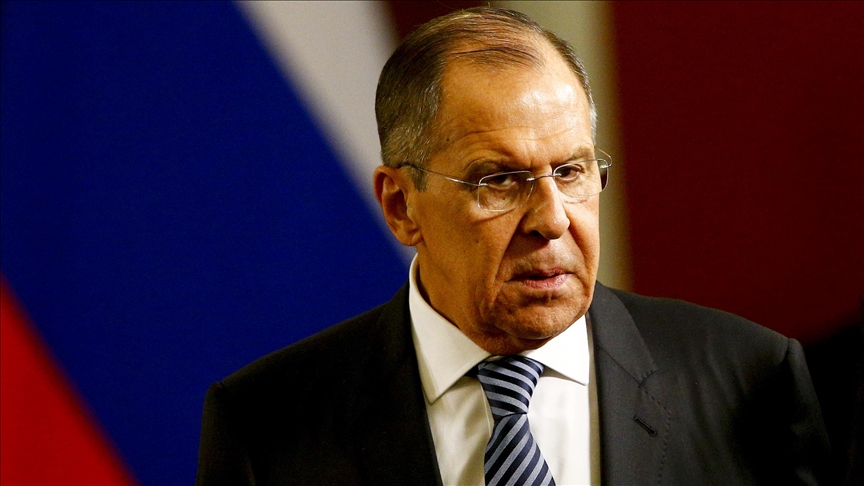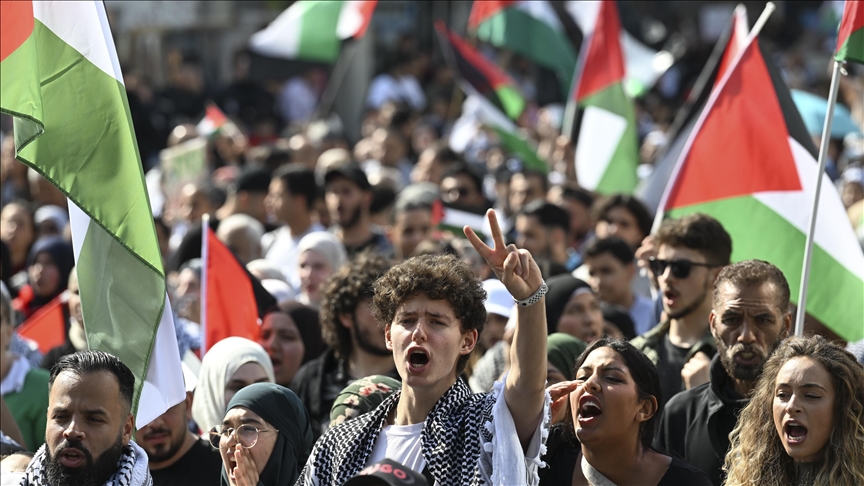Russia says ‘only method’ US uses in int’l affairs is ‘dictate, blackmail, threats, sanctions’
MOSCOW
Russian Foreign Minister Sergey Lavrov on Thursday said the only method that the US uses in its international relations is “dictate, blackmail, threats, and sanctions.”
Speaking at a news conference in Cuba’s capital Havana, Lavrov said he discussed over the course of his Latin American tour with counterparts the necessity to oppose the US and West’s attempts to dominate the world.
“If anyone had any doubts, the last couple of years have proved that the only method that the US uses in its international relations is to dictate, blackmail, threats, and sanctions,” he stressed.
Lavrov said Russia, along with Cuba and other countries, takes part in “collective efforts” aimed at countering such policies and building a just foundation for the international relations based on the implementation of the UN Charter and above all — on the principle of sovereign equality of states.
Asked about the US-Russia relations, Lavrov said the interaction is limited to irregular contacts.
“We only discuss, out of necessity, the problems that arise in the work of our embassies and the abuses that the US is trying to commit as a host country of the UN,” he noted.
The minister added that Washington “declared a crusade against Russia,” using Ukraine as the “spearhead of the attack.”
About a possibility of the restoration of the Russian military base on Cuba, Lavrov said Moscow and Havana are satisfied with the current state of military cooperation.
Commenting on remarks by Brazilian President Lula da Silva about the necessity to create BRICS (Brazil, Russia, India, China, South Africa) common currency, the diplomat said Russia will take part “with interest.”
The official reminded that BRICS countries agreed to decrease the share of dollar in mutual payments long ago, adding that many countries realize the necessity to create an alternative to dollar, although the process cannot be quick.
Lavrov said it is up to air carriers to decide about the necessity to organize regular flights from Russia to Latin American countries, and that the Foreign Ministry, for its part, is interested to have more connections with the states of the region.
The minister also informed that the Cuban officials will take part in a meeting of the Eurasian Economic Union in early June and in the Saint Petersburg Economic Forum.
Black Sea Grain Initiative
Asked about the decision of several European countries to close their markets to Ukraine’s agricultural products, Lavrov said it proves the commercial, not humanitarian character of the grain deal.
“When Ukrainian grain, bypassing all phytosanitary requirements, at zero tariffs, invades the European market at dumping prices, of course, this leads to huge losses for European producers,” he noted.
The minister said that instead of compensations, suggested by the European Commission, it would be “more honest” for Europe to buy the Ukrainian grain at cheap prices and send it for free to countries, which need food.
“Considering that the initiative of the (UN) Secretary-General (Antonio Guterres) suggests deliveries to poor countries, we began to insist that Ukrainian vessels provide data on where exactly they are taking grain. The goal is absolutely clear — to make ships going to poor countries a priority.
“The Ukrainian members of the inspection group tried to prevent the provision of information. This raises questions about the true purpose of those who insisted on making a deal,” he stressed.
Lavrov said that practically nothing has been done for the implementation of the Russian part of the deal, and that the UN, in response to all reminders of Moscow, says “the UN employees are trying and will continue to try to make some progress.”
“One of these days, the initiative will be in effect for nine months, and they are still ‘trying.’ It is hard to understand,” he said.
He added that outside of the deal, Russia finds a way for the export of its agricultural products and fertilizers despite existing problems.
Türkiye, the UN, Russia, and Ukraine signed a deal in Istanbul last July to resume grain exports from three Ukrainian Black Sea ports, which were paused after the Russia-Ukraine war began in February 2022.
A Joint Coordination Center with officials from the three countries and the UN was set up in Istanbul to oversee the shipments.
Anadolu Agency website contains only a portion of the news stories offered to subscribers in the AA News Broadcasting System (HAS), and in summarized form. Please contact us for subscription options.




